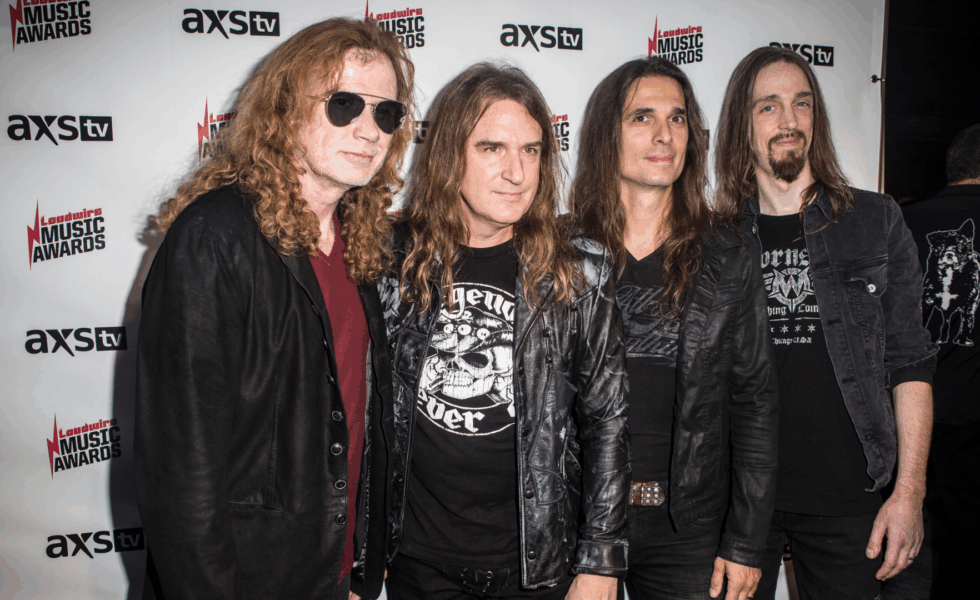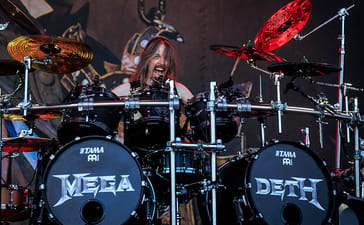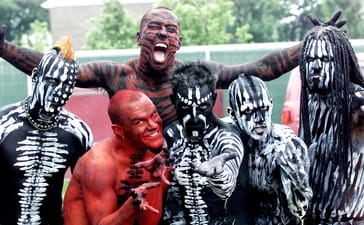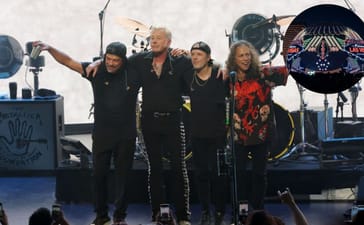Former Megadeth bassist David Ellefson said he believes the band “lost the plot” during the Risk era, saying “We zigged, and the rest of the world zagged”, referring to grunge overtaking thrash metal.
David Ellefson has shared his belief that Megadeth “lost the plot” while making their 1999 album Risk, saying that the group had gone too soft while the rest of the rock was gravitating to the rise of grunge.
In a recent appearance on the “100 Songs That Define Heavy Metal” podcast, the former bass player returned to the age-old argument of whether grunge killed hard rock and metal, or a vital force pushing it to evolve.
While Ellefson hasn’t always been the most generous in discussions about his time in Megadeth, the artist was refreshingly objective here. During the podcast, Ellefson would retell how Megadeth continued to tour and write while every other band was chasing the growing grunge scene in Seattle.
Ellefson would mostly agree with the narrative that the eighties Sunset Strip rock scene fell by the wayside after Nirvana and other Seattle-based bands rose to prominence in the 90s. However, Ellefson was cautious to point out that grunge wasn’t aimed at bands like Megadeth, Slayer, or Metallica.
Still, the bass player shared that the heavy metal music industry is still a business, and to survive, you have to play by its rules.
“Look, we played the game. Because it’s a game. When you’re in showbiz, it’s a game. And so you play the game. And, look, part of it is your self-interest. Do you wanna survive or not? You wanna be back out on the road again, paying your mortgage next year? Well, then we gotta play the game,” Ellefson shared (via Blabbermouth)
“Sometimes you do get a little beholden to the golden handcuffs of the paycheck. Just like in any business, it’s like anybody going to work. Do what the boss says. Well, sometimes the boss in music isn’t anyone in the band; the boss is the public. In fact, they’re always the boss, quite honestly. They pretty much dictate the course of your career,” he explained.
In essence, even the most prominent bands like Megadeth had to cater to fan expectations. An aspect that Ellefson says gets oversimplified by most retellings of events.
“I had [journalist and book author] Greg Prato on my podcast, and he had written this Megadeth book, and he pointed out too that, as you said, grunge kind of killed hair metal. [But] those guys [in all those bands] were fans of what we were doing. They were Slayer, Metallica, and Megadeth fans. They were not against what thrash metal was. So I’ve always stood up for grunge, ’cause I liked a lot of it. A lot of the Nirvana stuff, it’s punky, and I think it’s cool, man.”
Ellefson would go on about Megadeth’s place in the 90s and trying to find their footing. “The rise of grunge was the turning point. And that’s why I think for us, by the time we got to the Risk album [in 1999], we had different management at that point, and we lost the plot – we did,” he admitted.
“And we took it as far as we could go, as far as being sort of a melodic radio rock band. I think Cryptic Writings [1997], we completely hit the mark. That was a very successful record. And, yeah, musically you can hear there’s a great spirit in it, you can hear it’s authentic, you can hear it’s really still us, just kind of moving the goalposts a little bit so we could explore some stuff.”
“Risk, as our friend [former Megadeth manager] Larry Mazer said, we zigged, and the rest of the world zagged. I think that was the best way to look at it. We went lighter, and the rest of sort of the modern rock, modern metal regime went harder and heavier. And it took a few years to correct the ship and right the course from that one.”
You can listen to the full interview below:











